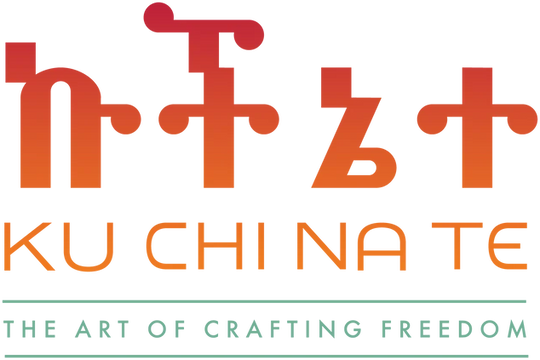Dangerous Art
Yefman’s multidisciplinary works challenge normative definitions of otherness and examine the way in which personal and collective traumas shape inherent identities. He does so by transformation of myths and other sources and creation of fantastic worlds populated by ambiguous alternative cultural heroes. Yefman uses a wide range of mediums to explore the potential hidden in the exceptional and tackle subjects that are considered taboo in Israeli society, such as death, pornography, and the Holocaust. His works exemplify his preoccupation with his unique gender identity and seek to challenge social norms. Sometimes he even conceals his own identity behind joint efforts, as in the case of his collaborations with the Kuchinate Collective and the artist Dov Or Ner.
The Kuchinate (crochet in Tigrinya) Collective was established in order to assist African women, survivors of the torture camps in Sinai. These women were captured on their journey to Israel and were held for long months in Sinai desert by Bedouin smugglers. They were subjected to severe torture and abuse, till the ransom money for their release was paid. To earn a living, and as a way of healing from their traumas, they create and sell traditional African baskets. Both Yefman and the collective members reside in southern Tel Aviv and share a love for knitting. The artist uses traditional handicrafts, especially knitting, as a method of coping with traumas. Similarly, the project offers women the opportunity to express their painful stories through knitting. The project helps them reconcile their memories from their homelands as opposed to their current identities and focuses on the process of adapting to the complex reality of life in Israel. The repetitiveness of knitting helps to cope with this existential tension.
In another collaboration, Yefman and established artist Dov Or Ner created a video-based project. The film shows Or Ner playing Adolf Hitler, while Yefman plays Penelope, a black woman wearing a knitted hat shaped like a golden tooth, resembling a vagina. They walk like phantoms, hand in hand, visiting various sites in kibbutz Yad Mordechai: the Mordechai Anielewicz monument, armored kindergartens, the “From Holocaust to Revival” Museum, the military cemetery, and others.
Or Ner, a Holocaust survivor whose parents died in Auschwitz, reinvented himself as Bad RenRo – his name spelled backwards. This persona allows him to cast Hitler and himself as the heroes of a surrealist-pornographic drama that ponders on the chilling possibility of the victim becoming the perpetrator. The exhibition is complemented by still images and props from the film. Yefman, the young artist, takes Or Ner’s decades of radical work further.
By showing the two projects side by side, Yefman emphasizes the importance of today’s refugee movement and its role in unfurling the tight grip that the myth of Holocaust and revival holds over Israeli society. African refugees represent a new historical awareness, offering a peek into a future that goes beyond nation states and their disastrous exclusion of non-citizens especially when it comes to women.
Philosopher Giorgio Agamben claimed that “only in a world in which [...] the citizen has been able to recognize the refugee that he or she is – only in such world is the political survival of humankind today thinkable.” It is a liberating notion, one that dissolves the distinction between citizen and refugee and recognizes the uprooted nature of the self.
In opposition to doctrines of social and political separation, Yefman proposes a “relationship of mutual exterritorialit.” In this manner, the works of Yefman, Or Ner, and the Kuchinate Collective converge beyond the borders of the familiar to create a new, universal reality.

